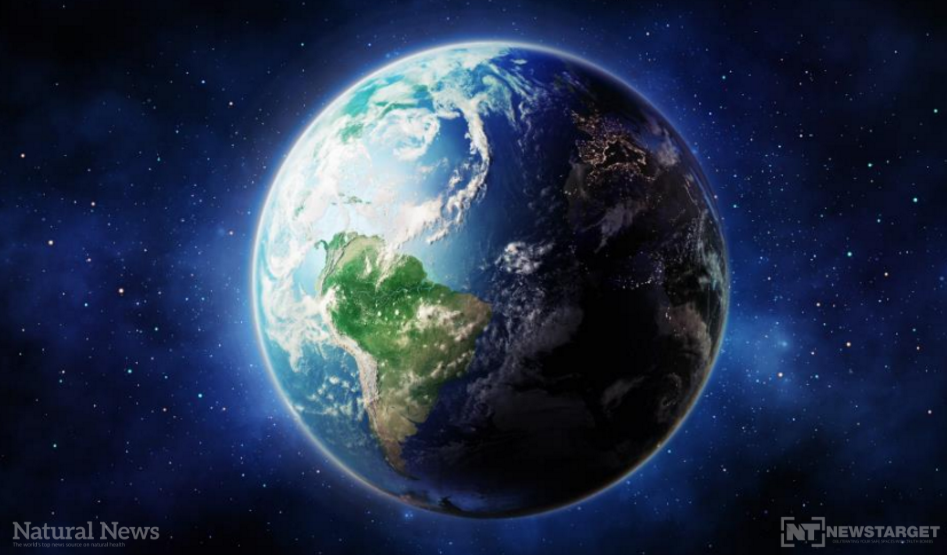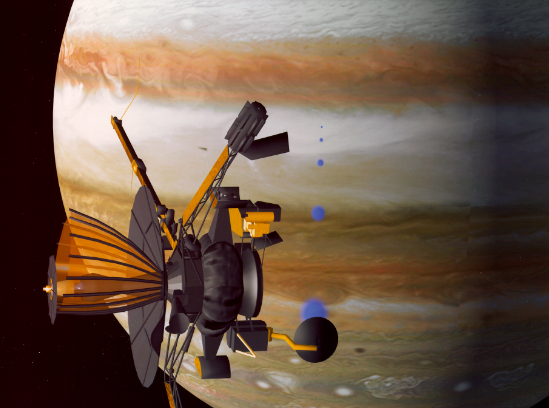
Scientists put forward the possibility that there is an enormous "ocean" near Earth's core.
NDTV reported that the international research has discovered a reservoir of water at least three times the volume of all the oceans beneath the Earth's surface. The water has been found in the region where the Earth's upper and lower mantles converge. (Related: Earth may have been a "water world" three billion years ago, new research suggests)
The research team utilized methods that include Fourier transform infrared (FTIR) spectrometry and Raman spectroscopy to analyze a rare diamond created 660 meters beneath the Earth's surface. The research supported a long-held belief that ocean water travels with subducting slabs and enters the transition zone. This means that the interior of the Earth is a part of the planet's water cycle.
"These mineral transformations greatly hinder the movements of rock in the mantle," said Prof. Frank Brenker of the Institute for Geosciences at Goethe University in Frankfurt, Germany.
For example, rising columns of hot rock from the deep mantle called mantle plumes sometimes stop directly below the transition zone. The movement of mass in the opposite direction also comes to a halt.
"Subducting plates often have difficulty in breaking through the entire transition zone. So, there is a whole graveyard of such plates in this zone underneath Europe," Brenker explained.
"The subducting slabs also carry deep-sea sediments piggyback into the Earth's interior. These sediments can hold large quantities of water and CO2. But until now it was unclear just how much enters the transition zone in the form of more stable, hydrous minerals and carbonates — and it was therefore also unclear whether large quantities of water really are stored there."
Transition zone could take in six times as much water that is on Earth's oceans
Wadsleyite and ringwoodite are thick minerals that can store a great amount of water. They can keep so much water that the transition zone could theoretically take in six times as much water that is on Earth's oceans.
"So, we knew that the boundary layer has an enormous capacity for storing water. However, we didn’t know whether it actually did so," Brenker stated.
The research team examined a diamond from Botswana, Africa, which formed at a depth of 660 kilometers – right at the interface between the transition zone and the lower mantle, where the predominant mineral is ringwoodite.
Diamonds from this place are exceedingly rare, even among the extremely rare diamonds of super-deep origin, which account for only one percent of all diamonds. The researchers discovered that the stone has several ringwoodite additions, indicating that it had large water content.
The team also examined the rock chemically. Diamonds come from the classic part of the Earth's mantle and similar to almost every piece of mantle rock around the world.
The researchers were able to determine the chemical structure of the stone. It was almost identical to about every chunk of mantle rock discovered in basalts around the planet. This proved that the diamond was created from a normal chunk of the Earth's mantle.
"In this study, we have demonstrated that the transition zone is not a dry sponge but holds considerable quantities of water. This also brings us one step closer to Jules Verne's idea of an ocean inside the Earth," Brenker said.
The difference is that there is actually no ocean down there. Instead, there is a hydrous rock, which don't drip water.
Follow CensoredScience.com for more news about the latest discoveries on Earth and beyond.
Watch the video below to know more about strange things going on in the Earth's core.
This video is from the END TIME NEWS channel on Brighteon.com.
More related stories:
"Superionic" minerals flow through Earth's deep mantle, according to study.
Scientists can track water deep underground by studying diamond impurities.
Baffling new substance discovered deep inside Earth's core.
Sources include:
Please contact us for more information.




















